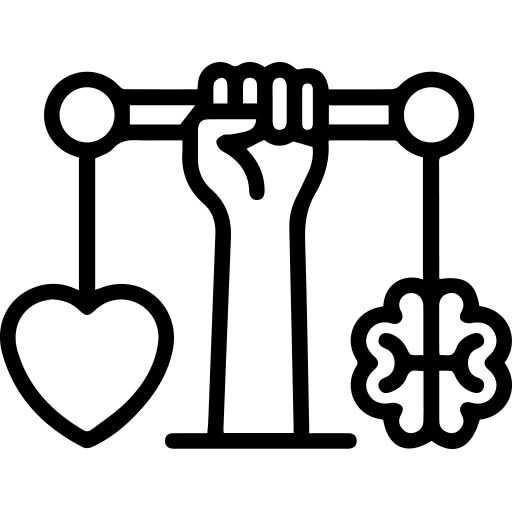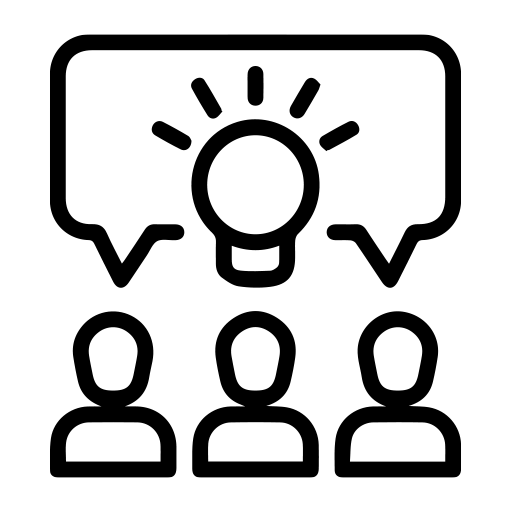Call for Papers
The CDIO approach (www.cdio.org) is an innovative educational framework designed to produce the next generation of engineers. It emphasizes engineering fundamentals within the context of Conceiving — Designing — Implementing — Operating (CDIO) real-world systems, products, processes, and services.
Recognising the diverse paths of engineering education, CDIO collaborators understand that programs vary in length and stage across different institutions, and that educators everywhere can benefit from shared practices. Throughout the year, CDIO institutions, educators, and researchers come together to exchange ideas, review developments, and refine the CDIO approach.
We invite your contributions to the 21st International CDIO Conference in Melbourne, Australia, from 2 – 5 June 2025. Submit your proposals for papers, working groups, workshops, and roundtables.
Forging Connections: Synergies for a Sustainable Future
Under the theme “Forging Connections: Synergies for a Sustainable Future,” this year’s conference aims to explore the powerful collaborations and innovative approaches driving the future of engineering education. We invite proposals for contributions that resonate with the CDIO approach and our overarching theme. This is an opportunity to share your insights, research, and innovations through various formats including Podium Presentations, Poster Presentations, Workshops, Working Groups, and Roundtable Discussions. For Paper contributions, the presentation formats are Podium Presentations and Poster Presentations. Workshops, Working Groups and Roundtable Discussions are contribution categories that do not require a full paper. Please see the sections below for more details about the contribution categories and presentation formats.
Conference Themes
In line with the main theme of the conference, we are particularly interested in contributions that address one or more of the following sub-themes, reflecting the most pressing issues and transformative ideas in engineering education today:

Sustainability in Engineering Education
Integrating sustainability principles into engineering curricula and projects.

Diversity, Equity, and Inclusion
Cultivating environments that are diverse, equitable, and inclusive and observing the results of these

Ethics and Professional Responsibility
Instilling ethical practices and professional responsibility in future engineers.

Transdisciplinary Approaches
Integrating knowledge from multiple disciplines to tackle complex, real-world challenges.

Emotion and Reason in Relation to Wicked Problems
Balancing emotion and logic to address complex, unsolvable problems
We also encourage submissions in the following areas, which remain a key focus for us:

Educational Research and Innovation
Pushing the boundaries of engineering education through cutting-edge research and innovative practices, and strategies for implementing research-backed practices.

Industry Collaboration and Perspectives
Strengthening ties with industry to enrich engineering education.

Artificial Intelligence and Emerging Technologies
Harnessing AI and new technologies to enhance learning and teaching.
Further suggestions for contributions:
As always contributions on core CDIO topics are encouraged and welcomed including:
Challenge-Based Learning
New developments in Engineering Education
Engineering Projects and
Introduction to Engineering
Faculty Development
Design-Build-Test Learning
Curribulum and Course Development
Learning Environments - Online & Onsite
Student Engagement
Internationalization
All contributions must connect to the CDIO Standards, and only those explicitly addressing at least one CDIO Standard will be considered.
Submission Process & Categories
Please note: the CDIO conference submission process has changed!
For the 2025 CDIO Conference, we are moving to a single-phase submission process, eliminating the previous two-phase (abstracts and full papers) review system.
Important Dates
15 January 2025
Submission Deadline
10 March 2025
Notification of Acceptance/Conditional Acceptance Issued
7 April 2025
Revised Submission Deadline
1 May 2025
Final Submission Camera Ready Deadline
Papers:
Submissions in this category require a full paper that meets peer review standards. Papers should be no more than 10 pages. Longer manuscripts may be considered if the length is justified by the content. The review process consists of two stages (see important dates and dealines):
- Submission of a full paper, following the template and criteria.
- Submission of the final version, revised according to reviewer feedback.
All final papers will be distributed electronically to conference attendees. Papers accepted in the Engineering Education Research, Advances in CDIO, and CDIO Implementation tracks, along with State-of-the-art Papers from working groups, will be archived on the CDIO website and included in the electronic conference proceedings.
Scopus-indexing: The Proceedings of the International CDIO Conference are Scopus-indexed.
Paper submissions are being accepted in four tracks:
Please note that papers “accepted with changes,” will undergo another review, and that all papers will be reviewed for adherence to the conference template.

Engineering Education Research (EER):

Advances in CDIO:
This track is for papers that advance the state of the art in the CDIO framework or CDIO-based education. This may include extensions or revisions of the CDIO framework, comparisons with other frameworks, or the introduction of new CDIO materials (e.g., revised syllabus, standards, rubrics). Submissions must meet the standards for original scholarly publication.

CDIO Implementation:

CDIO Projects in Progress:
This track is for papers describing ongoing projects, including initial development, current activities, and preliminary results. It provides an opportunity for authors to share early findings and receive feedback from conference attendees. Papers initially submitted to other tracks (EER, Advances in CDIO, CDIO Implementation) may be redirected here by the program committee based on peer-review feedback. Papers in this track will be distributed electronically to conference attendees but will not be archived on the CDIO website or included in the proceedings.
Note! The submitting author must propose the presentation format during the paper submission. Papers in all four tracks described above can be presented either as Podium Presentation or Poster Presentation. The presentation format may be changed by the Program Committee as part of the review process.
Workshops, Roundtables, and Working Groups:
Submissions in these categories require an Activity Description, no longer than two pages. This description will be distributed to conference participants but will not be archived or included in the proceedings. The review process follows the same deadlines as the Papers category:
- Submission of a two-page activity description with detailed plans for participant engagement.
- Submission of the final version, revised according to reviewer feedback.
Submissions must follow a template provided for one of the following three formats:

Workshops:
Workshops can be designed for participants with varying levels of experience – either fundamental for beginners or advanced for those seeking to deepen their knowledge or gain new perspectives. To propose a workshop, submit an Activity Description detailing the topic and a session outline for either 60 or 120 minutes, ensuring it includes a significant active component.

Roundtable Discussions:
Roundtables are informal discussions led by a facilitator on a specific topic. The goal may be to generate ideas, solve a particular challenge in engineering education, or explore a new advancement within CDIO. The Activity Description should include the topic and a set of discussion questions.

Working Groups:
Working groups are vital to the ongoing development within the CDIO Community. These groups, consisting of 5-10 participants with a shared interest, start collaborating remotely at least two months before the conference and continue their work during the event. The Activity Description must outline the group’s focus and planned pre-conference activities. If accepted, the proposal submitter(s) will lead the group, selecting participants from among interested conference delegates. All group members must register for and attend the conference. We welcome proposals for new working group themes for the 21st International Conference in Melbourne.
Session Formats
Authors can indicate their preferred presentation format during abstract submission, but the Program Committee will make the final decisions to best match the nature of each contribution. Since the conference aims to foster collaboration and idea-sharing, interactive formats are encouraged.

Podium Presentations:

Poster Presentations:

Workshop:
Interactive sessions designed to engage participants on specific topics. Workshops are either 60 or 120 minutes long, with facilities provided on-site.

Roundtable Discussion:

Working Group:
Working groups present preliminary results at a plenary session and may submit a final State-of-the-art Paper shortly after the conference, following an agreed deadline. The final paper is reviewed by the program committee and, if accepted, is published in the proceedings.
Submission Details
Full paper submissions for Papers and Activity Descriptions for all other categories must be completed on or before 15 January, 2025. All submissions are made online and the link will be published soon.
The submission must follow the formatting requirements detailed in this template and must include a Creative Commons License to allow it to be included in the proceedings and/or archived on the CDIO website.
Furthermore, at least one of the authors must register by the final submission deadline, participate in the conference and present the contribution. If no author is registered by the deadline (April 30th, 2025), the contribution is considered withdrawn from the program.
Templates
| Contribution Category | Track | Page Limit | Review | Publication | Presentation Format |
| Paper | Engineering Education Research (EER) | 10 | Single-blind review | Proceedings and CDIO Archive | Podium or Poster |
| Advances in CDIO | |||||
| CDIO Implementation | |||||
| CDIO Projects in progress | Distributed to participants only/Not archived or published | ||||
| Activity | Workshop | 2 | Program Committee | Distributed to participants only/Not archived or published | Workshop |
| Roundtable Discussion | Roundtable | ||||
| Working Group | Proceedings and CDIO Archive | Meeting |
General Criteria for Selection
- Relevance to the conference theme and tracks
- Novelty of innovative ideas with proven results
- Potential to stimulate thought and discussion
- Applicability of ideas, programs, and practices to the CDIO community
- Compliance with the criteria for the submission
Publication Ethics and Malpractice Statement
Contributions that will be published in the CDIO Proceedings are expected to meet the standards set by the referees. The contributions should meet the expectations for original scholarly publication, including adequate review of relevant literature, a hypothesis, results of simulations or measurements, analysis, and conclusions. They may address any area of CDIO, including scholarly examinations of CDIO implementation. The submission must follow the formatting requirements detailed in the template available on the conference website and must include a Creative Commons License to allow it to be included in the proceedings and/or archived on the CDIO website.
The complete Publication Ethics and Publication Malpractice Statement of the CDIO Proceedings and citation rules are available on www.cdio.org.
AI Usage Declaration
We recognise the growing role of Artificial Intelligence (AI) in research and academic writing. To maintain the integrity and transparency of the research process, we require that any use of AI tools or software in the research, analysis, or writing of submitted papers must be clearly and honestly acknowledged. Authors must provide a detailed explanation of how AI was used in their work, including the specific tools utilised and the extent of their contribution.
AI in Peer Review
It is important to note that the use of AI tools to review submitted papers or to generate peer review reports is strictly prohibited. The papers submitted for review are unpublished works, and the use of AI to process these documents can result in unauthorised data processing, potentially breaching confidentiality agreements and intellectual property laws.
Reviewers are expected to engage with the content using their own expertise and judgment. Failure to adhere to these guidelines could result in the disqualification of the reviewer or the withdrawal of the paper from consideration.
